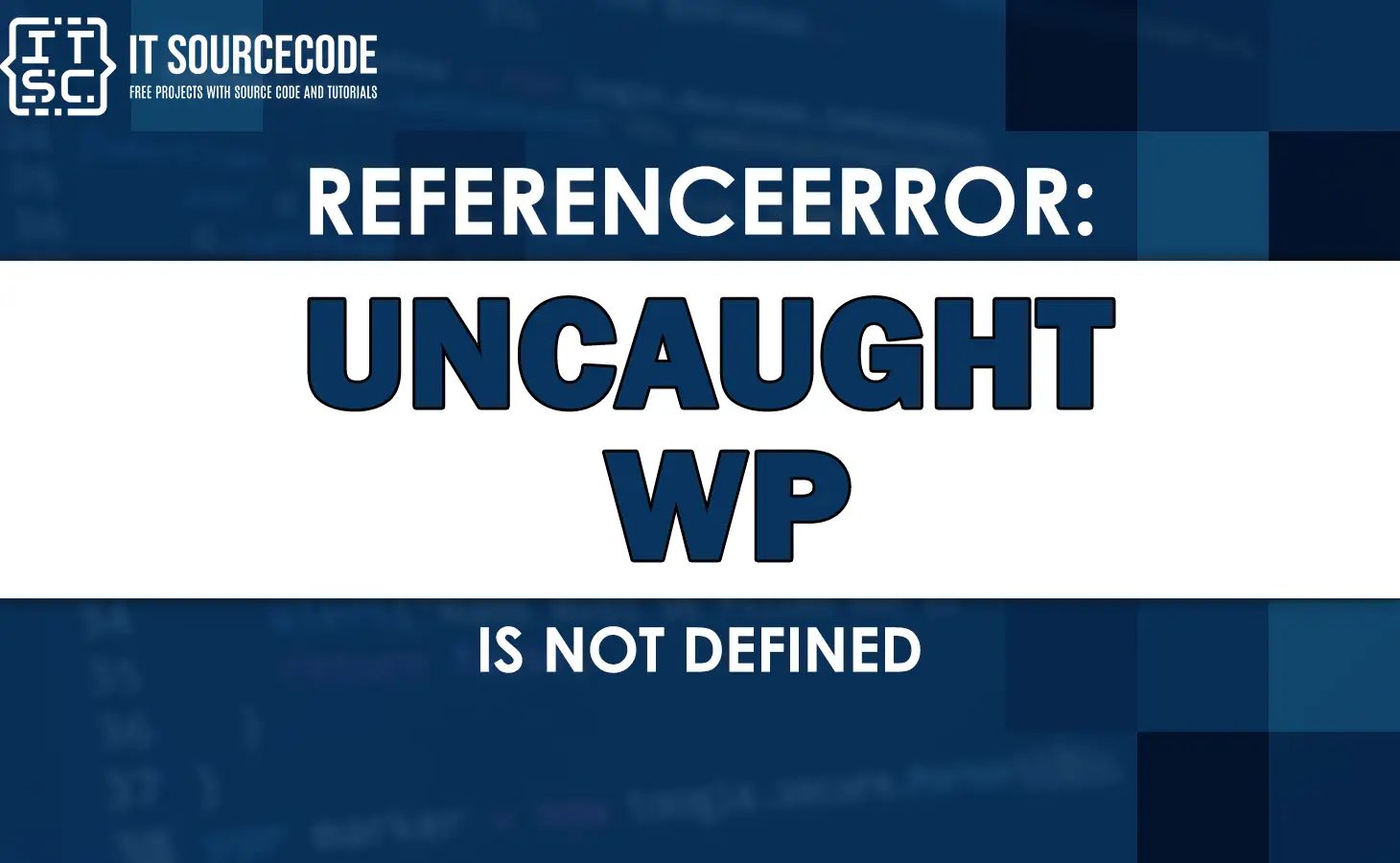One particular error that can be quite frustrating is the “Uncaught ReferenceError: wp is not defined.”
This error commonly happens when JavaScript code refers to an object or variable that hasn’t been defined or isn’t accessible within the current scope.
In this article, we will delve into a more comprehensive understanding of this error and explore the different reasons behind it as well as potential solutions to fix it.
What is uncaught referenceerror: wp is not defined?
The error message “Uncaught ReferenceError: wp is not defined” commonly appears in JavaScript when attempting to refer to a variable or object that has not been declared or defined.
In this particular situation, it appears that you’re facing an error because the identifier “wp” has not been defined prior to its usage.
The “wp” variable or object could be a custom variable or a component of a library or framework utilized in your code.
Causes of this Error
The error “Uncaught ReferenceError: wp is not defined” can occur due to the following causes:
- Typographical errors: Check for any misspelled variable or object names.
- Missing or incorrect script/library inclusion: Ensure that the necessary scripts or libraries, including “wp”, are properly included in your code.
- Execution order: Make sure the script defining “wp” is executed before any code that references it.
- Variable scope: Verify that “wp” is declared in the appropriate scope and accessible where it is being referenced.
- Timing issues: If “wp” is loaded asynchronously or dynamically, ensure that it is available before referencing it using techniques like callbacks, promises, or event listeners.
Solutions – Uncaught referenceerror: wp is not defined
So here are the solutions you can consider while fixing the error since you now understand why this error occurs.
1. Check for Typographical Errors
Ensure that the variable or object name “wp” is spelled correctly. JavaScript is case-sensitive, so make sure the case matches exactly.
2. Include the Required Script or Library
If “wp” is part of an external library or script, make sure you have properly included it in your HTML file.
For example, if you are using WordPress-related functionality, you might need to include the WordPress script in your code like this:
<script src="https://example.com/wp-includes/js/wp.js"></script>
Take note. Make sure to replace the URL with the correct path to the WordPress script.
3. Execute Code in the Correct Order
If “wp” is defined in a separate script file, ensure that the script is executed before the code tries to reference it.
You can achieve this by including the scripts in the correct order in your HTML file:
<script src="path/to/wp.js"></script> <!-- Include wp.js first -->
<script src="path/to/yourScript.js"></script> <!-- Then include your script -->
4. Check Variable Scope
Verify that “wp” is declared in the appropriate scope and accessible where it is being referenced.
If “wp” is defined within a function, make sure you are trying to access it from within that same function or higher scope.
Here’s an example:
function myFunction() {
var wp = "Some value"; // Declaration within the function
// Rest of your code using the "wp" variable
}
5. Handle Timing Issues
If “wp” is loaded asynchronously or dynamically, you may need to wait for it to be available before referencing it.
You can use callbacks, promises, or event listeners to ensure that the code using “wp” is executed only when it is defined.
Here’s an example using a callback function:
function init() {
// Code that uses "wp"
}
function loadScript(callback) {
// Load the script dynamically
var script = document.createElement('script');
script.src = 'path/to/wp.js';
script.onload = callback; // Call the callback function once the script is loaded
document.head.appendChild(script);
}
loadScript(init); // Pass the init function as the callback
In this example, the “init” function will be executed only after the “wp” script is loaded.
Anyway, here are other fixed errors you can refer to when you might encounter them.
Conclusion
In conclusion, encountering the “Uncaught ReferenceError: wp is not defined” error in web development can be a source of frustration.
However, by gaining a deeper understanding of its causes and implementing the right troubleshooting techniques, this error can be effectively resolved.
By adhering to best practices, conducting thorough testing, and employing careful debugging, developers can minimize the occurrence of this error and ensure the seamless functionality of their JavaScript code within WordPress websites.
We hope this guide has assisted you in resolving the error effectively.
Until next time! 😊

